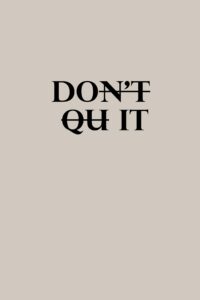Tagged: “Dr. Robert Enright”
I have been ignoring a co-worker who is harsh with me. I am wondering if this makes me a bad person. I do not hate the person and I feel sorry for him. I just can’t take the harshness.
It seems to me that your issue is one of reconciliation. You are not harboring hatred, as you say. You even “feel sorry” for him. So, there is no indication of being a “bad person” who might want to seek revenge and be hurtful. So, I recommend that you work on changing your views of yourself, seeing yourself as someone who reduces negative emotions in the face of difficult interactions coming from the other person.
I am aware of the success of forgiveness with adults in prison. I now am wondering if you have any evidence that forgiveness interventions can work in juvenile corrections.
Yes, we have two published studies, both conducted in South Korea, demonstrating the effectiveness of forgiveness interventions for adolescents. The two references are as follows:
Park, J.H., Enright, R.D., Essex, M.J., Zahn-Waxler, C., & Klatt, J.S. (2013). Forgiveness intervention for female South Korean adolescent aggressive victims. Journal of Applied Developmental Psychology, 20, 393-402.
Ji, W. & Enright, R.D. (2024). Forgiveness in juvenile corrections: An exploratory study on Korean female youth offenders. Journal of Family Trauma, Child Custody, and Child Development.https://doi.org/10.1080/26904586.2024.2436967
An Achilles’ Heel for Forgiveness: The Lack of Perseverance

Photo by Leeloo The First, Pexels.com
In his classic work Pensees, Blaise Pascal discusses a challenge many people face. It is what he calls diversion, which is a kind of distraction from one’s primary goals in life. Diversion can temporarily be a source of entertainment or comfort in a challenging world. Yet, over time, such distractions can keep us from the larger questions of life, such as: Why am I here? What virtues should be the basis of my interactions with others? What happens when I pass away from this life?
Distractions can lead us away from our primary goals as we, for example, seek pleasure rather than directly meet the challenges of life. The new norms of society, the new games, the new entertainments can slowly, or at times even suddenly, take us far from our life’s goals. This can happen subtly so that the one distracted is not even aware that this movement away from meaningful goals is occurring.
I have seen this happen very often when it comes to practicing and nurturing forgiveness in a person’s life. This is 40 years of my observing forgiveness talking to you now. I have seen an initial euphoria in people who have been introduced to forgiveness, accurately defined, only for it to fade in them. I have seen this fading away in well-meaning teachers who start forgiveness education only to shift to the next hot topic emerging in education. Forgiveness just quietly drops off the radar, and so new students are not given the opportunity to understand and practice this life-giving virtue.
I have seen this in families. A person might read a self-help book on forgiveness, discuss it with others in the family, practice it for a while, and then it fades.
The ancient Greek philosopher Aristotle reminded us thousands of years ago that to become more efficient in any moral virtue, we need three things: practice, practice, practice. Early enthusiasm is only a beginning. Greater proficiency grows across time as the person learns to appreciate the virtue even more, becomes more proficient at it, and eventually develops a love of that virtue.
What do you think? Those of you reading this: Can you say that you have developed a love of forgiveness, properly understood and practiced? Can you say that you are persevering in forgiveness, making it a part of your life? Can you say that you now are giving forgiveness to others in your family, workplace, worship community, and the larger community? If so, my hearty congratulations to you for your perseverance.
To those of you just picking up the banner of forgiveness, please be aware that your initial enthusiasm could fade too easily because of distractions. Please be aware of this……..and don’t let it happen.
![]()
I have been reading a lot about the idea that “forgiveness is for you” (the injured person), not for the one who behaved badly. Do you agree?
No, I do not agree with this idea. If forgiveness is a moral virtue, then it concerns goodness toward others, particularly the one who was unjust in the case of forgiveness. In fact, I have written an essay for Psychology Today about this very issue here:
Is forgiving others basically a decision, such as a decision to be kind to the one who was unfair?
Decisions are part of forgiveness, but not the entire essence of forgiving. As a moral virtue, forgiveness includes thinking (a decision is a thought), feelings, motivation, and actions toward the one who was unjust. Here is an analogy to make it clearer. Suppose you decided to work in a soup kitchen to help people without homes. Your decision was made as you sat on our sofa watching television. If you do not follow through on that decision in your motivation to get up off the sofa at some point and behaviorally go to the soup kitchen, would you say that your decision alone was sufficient regarding assisting people without homes? Decisions need to be broadened with feelings about going forward, the motivation to do so, and the action consistent with all of this.



